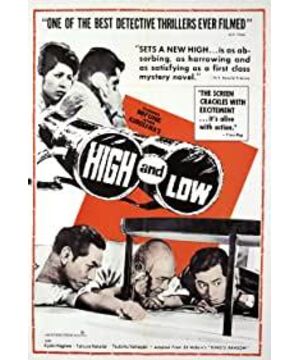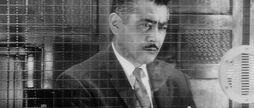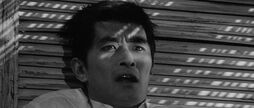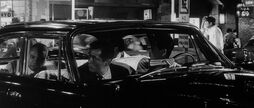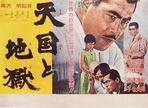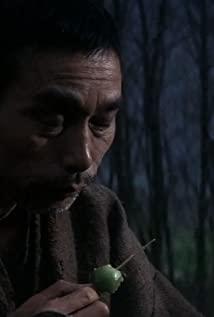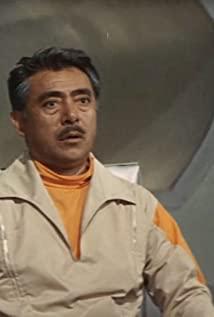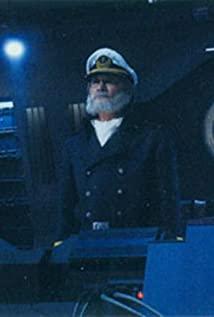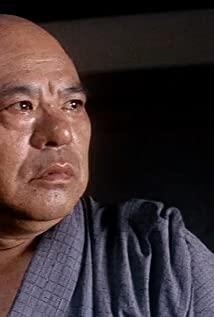http://qfmeng.blogbus.com/logs/196449351.html
Heaven and Hell (1963)
entered March 2012, and IMDB250 has New changes, new additions such as several films, this film is the only one I haven't seen. I found 720P resources and read it.
The film tells the story of a kidnapping case planned by the poor and hated by the rich and the process of its detection. A rich man mortgaged all his property to raise huge sums of money for an internal battle, but that night the son of the rich man driver was mistaken for the son of the rich man and kidnapped. The ransom demanded by the kidnappers can almost bankrupt the rich. The rich knew that the kidnappers didn't want to pay after they caught the wrong person, and they wanted to put the money into the company to continue the fight. The next day, the assistant who was supposed to give the money backed out and told the rich man that using the money for corporate battles would only ruin his reputation. The rich man was furious and forced to ask the reason why the assistant refused to send the money: the assistant had defected to the other side of the company. After driving the assistant away, the rich decided to use the money to redeem the child. Over the next two days, the rich, assisted by the police, handed over the money to redeem the children. Afterwards, the rich man's righteous deeds were widely praised by the media and the public. Even so, the rich man lost his position within the company and was fired. Seeing all this, the police are determined to help the rich get the ransom. As a result, the police spent a lot of energy and careful investigation and found the place where the kidnapper's assistant lived. But two aides are dead, and the police have not made much progress. Afterwards, the police used newspapers to release fake news, which made the kidnappers panic. The police found the kidnappers by following the clues and decided to make the kidnappers murder the two dead helpers again. The kidnappers were very cautious, but they fell into the trap of the police and were caught as a murderer. In the end, the kidnapper was sentenced to death and told the rich man on his deathbed that he was just hating the rich by doing all this.
The film is a film that reflects the reality of Japanese society. Through a kidnapping case, the film shows the mercenary of large Japanese companies, the living conditions of different classes in Japanese society, the dissatisfaction of the poor with real life, and the phenomenon of drug addiction in Japan. It is a very realistic "case-solving" film. The central theme of the film is its title, "Heaven and Hell", which refers to the poor and the rich and the disparity between them, in other words the disharmony caused by the uneven distribution of society. It is this disharmony that makes the poor have a hatred of the rich. "You are high above the sky like heaven, but I am in a slum like hell. I get angry when I look at it! I also have to let you taste the taste of 'hell'." This is the mentality of the kidnappers in the film, which shows that Japan was at that time. How polarized is society? In addition, the internal fighting and drug use in the film are also another aspect of Japanese society that the film reflects. Competition within enterprises is the manifestation of human selfish desires. Although drug use is an inevitable phenomenon in society, the living conditions of drug addicts in Japan are unsightly. It can be seen from the above that the rich will become richer and the poor will become poorer in Japan. There is no mediation mechanism at all. It can be seen that the gap between the rich and the poor is a contradiction that is difficult to reconcile in any country. In short, the film not only shows the dark side of Japanese society through these, but also reflects the class contradictions of Japanese society.
As for the movie itself, it is a very good detective movie. The plot is smooth and the suspense is repeated. Although there are many dialogues, it is not boring. The whole film seems to be completed in one go, and there is no sense of burnout. It can be said that this film is a very "good-looking" film. The best part of the whole film is in the detection process of the case: the police use the trace analysis to deduce the whereabouts of the kidnappers, and they will catch the kidnappers in one fell swoop. This process not only makes people have the desire to solve the case when watching the movie, but also makes the viewer's tense nerves closely follow the plot and keep thinking. In short, although the movie does not have a major turning point in the plot, the process of solving the case by following the clues is still worth recalling. There are few films in the world with such meticulous plot and no omissions.
The filming of the film is quite satisfactory. Many people are very impressed with the movement of the film, saying how good the scene scheduling is, how accurate the character positions are, and so on. But as a film layman, I really didn't see the excellence of it. In my eyes, I just remember that the dialogue of the movie is very vivid, and all the characters in the whole film can only unfold the story in a limited space, but the plot is not boring. Although Akira Kurosawa's directing style makes it vivid and not boring, I still think the script is better than the scene. It is because the script is good that the film becomes good. Of course, Akira Kurosawa's control of images is still very unique. Through the use of close-ups of characters in the film and the rendering of music, you can feel his excellent directing ability. In addition, I have to say that this film is a black and white movie, and the pink smoke that appears in the middle of the film makes the plot look very abrupt, too fake! Akira Kurosawa might as well make this film into a color movie.
Finally, my opinion. The rich chose to save people because of the words of their assistants. He knew that if he did not save the children, he would be scolded to death by public opinion, and he would not benefit himself. In this case, it is better to pay the ransom for a good reputation, so that at least he can be a good person recognized by everyone. Therefore, the rich are rich after all, and they will not find out with their conscience. They are still starting from their own interests. Therefore, after watching this film, we can draw a conclusion that "heaven" in Japan is always heaven, and "hell" is always hell.
Let's talk about actors. Toshiro Mifune, one of the male protagonists, doesn't have many scenes, and his performance is relatively ordinary. I haven't seen his psychological change from not saving people to saving people. Mifune Toshiro is also getting old and fat in the film, and the years are not forgiving. The performance of Tatsuya Nakadai, the second male lead, is also average, even more common than Toshiro Mifune. Throughout the film, his expression basically did not change, and he was always polite, too gentle. Except for the male protagonist, the other actors are also like this, tepid and not very involved in the drama. Only the kidnapper's hysteria at the end of the film is real. It seems that when Akira Kurosawa was shooting this film, he only paid attention to the plot and shots, and forgot to direct the actors to perform.
in conclusion. This film is a very attractive detective and inference film, the story is very attractive, the theme is also very deep, but the actors' performances are very ordinary. This movie can be called a good movie, but it is still far from a masterpiece. So it will float inside and outside the IMDB250. However, Akira Kurosawa's films are still somewhat guaranteed, at least not bad ones.
Sequence: 0738
High.And.Low.1963.720p.BluRay.x264-SiNNERS
2012-03-05
View more about High and Low reviews


